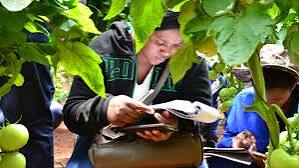Top 10 Mining Qualifications in South Africa

Top 10 Mining Qualifications in South Africa: Unlock Your Career
South Africa’s mining sector stands as a bedrock of the economy. It always looks for skilled people to drive new ideas and make operations better. From finding new minerals to digging them up, processing them, and keeping workers safe, the need for qualified folks stays high. But figuring out which qualifications to get can be tough. This article looks at the key mining qualifications that open doors to good jobs in South Africa’s important mining industry. It will tell you what each qualification involves and why it matters for success. Knowing these qualifications is the first step to building a strong and useful career in one of the nation’s biggest economic areas.
South Africa’s mining industry is tricky and truly needs special knowledge. Employers want people with clear skills and known papers. This makes sure they have the right abilities to meet tough safety, environmental, and work rules. No matter if you want to start in the field or move up in your job, picking the right qualifications is vital. This guide is a full resource. It lists the top 10 mining qualifications that employers truly value. These also help the mining sector grow and improve over time.
Understanding the Importance of Qualifications in Mining
Why Formal Qualifications Matter in the Mining Sector
Formal training directly links to getting hired in mining. It makes sure workers know safety rules well. Proper training also improves how mines run every day. This kind of education keeps everyone safe and makes sure things get done the best way. Plus, having formal papers helps you climb the career ladder. It often means a better salary too. Companies trust people with certified skills to do the job right.
South Africa’s Mining Industry Landscape and Skill Demands
South Africa’s mining sector is huge. It mainly digs for gold, platinum, coal, and diamonds. Jobs are always opening up for skilled workers. The industry needs people who can handle new tech and machines. Automation is changing many jobs, needing different kinds of smarts. There’s a clear need for skills in areas like data analysis and advanced machinery use. This helps the industry keep up with modern ways of working.
Top 10 Mining Qualifications in South Africa
1. National Diploma in Mining Engineering
This diploma teaches you about mine design and how to move air through mines. You learn about rock strength and how to process minerals. Measuring mine areas also forms a key part of the learning. After this, you could work as a mine planner or a manager in a production area. Groups like ECSA recognize this qualification.
2. Bachelor of Science (BSc) in Mining Engineering
This degree builds on the diploma, giving deeper knowledge. It covers mine money matters and how to manage the environment in mining. You also study how to make operations run better. Jobs can include senior engineering roles or research positions. Many students go on for higher studies after this degree.
3. Mine Manager’s Certificate of Competency (Mine Managers Cert)
This certificate is all about the legal and boss roles in mining. You need a lot of work experience to get it. Passing tough exams is also a must. This paper is very important for anyone wanting to be a top manager in a mine. It shows you can run an entire mining operation safely and well.
4. Mine Surveyor’s Certificate of Competency
A mine surveyor maps underground and open-pit mines. They measure how much material is there and make sure all locations are exact. You need specific schooling to take the test for this certificate. This role helps keep mine plans accurate and safe.
5. National Certificate: Mine Environmental Control
Managing the environment is now very important in mining. This certificate teaches you about stopping pollution and handling waste. You learn how to fix land after mining and check how mining affects nature. People with this certificate work to make sure mines follow green rules.
6. National Diploma: Mineral Processing
This diploma explains how to separate valuable minerals from rock. You study crushing, floating, and chemical ways to get minerals out. You could work in plants that process minerals or in metal works. This role is key to getting the final product.
7. Mine Overseer’s Certificate of Competency
This qualification is a step toward becoming a manager. It focuses on watching over mining work, keeping people safe, and managing workers. It’s a lower level of management than the Mine Manager’s certificate. This role ensures daily tasks run smoothly and safely.
8. Bachelor of Engineering (BEng) in Metallurgical Engineering
This degree centers on the science of taking out and cleaning metals. You learn about using heat, water, and electricity to process metals. Careers include making metals or working with materials science. This is vital for all metal-based industries.
9. National Diploma: Rock Engineering
This diploma specializes in how rocks act in a mine. You learn about controlling ground movement and designing tunnels. Blasting methods are also a key part of the study. Rock engineers stop mine collapses and keep everyone safe.
10. Occupational Health and Safety (OHS) Qualifications (e.g., SAMTRAC, NEBOSH)
Safety is a huge deal in mining. Various OHS qualifications and certifications are key for this field. People with these papers make sure safety rules are followed. They work to lower accidents at the mine. These roles save lives and prevent injuries.
Career Pathways and Professional Development
Gaining Practical Experience and Internships
Getting hands-on experience is very important. Look for internships and learnerships at mining companies. These programs help you apply what you learned in class. Practical time in a mine makes your formal qualifications much stronger. It also helps you build connections in the industry.
Continuing Professional Development (CPD) and Further Education
Learning never stops in the mining world. Taking more courses and getting higher degrees helps your career grow. Many professional groups offer ongoing training. Keeping your skills fresh helps you move up. It makes you a more valuable worker over time.
Networking and Industry Engagement
Building a network of contacts is super useful. Go to industry events and join professional groups. Use online sites to connect with others in mining. Good networking can lead to new job chances and helps you share what you know. Strong connections make your career path clearer.
Conclusion: Investing in Your Mining Career
Having the right qualifications is truly important for a good career in South African mining. We’ve looked at the main ones that open doors. Think of your education as an investment in your future. It helps you meet the changing needs of the industry. Getting recognized mining qualifications offers big benefits for years to come. Start today to shape a strong and rewarding path in this vital sector.





